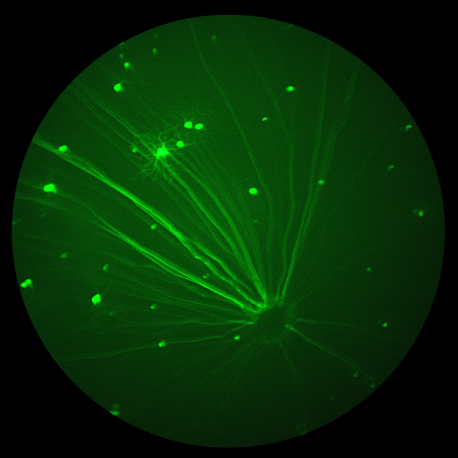Moving image review and documentation out of the lab and onto your desk. Lab space is not always the best place to work with your study images and data. Access restrictions, PPE requirements and competition for lab. time make this inconvenient. MICRON Review Station allows you to take your images and data out of the […]
16.08
2023
Small zebrafish are impressive, effective models for studying endotoxin induced uveitis
Researchers at Henan Province Eye Hospital in China have made great strides in studying endotoxin-induced uveitis (EIU) by creating a novel EIU model in zebrafish. Uveitis is an ocular inflammation and one of the main causes of visual impairment, accounting for 10-15% of global blindness. Mice have typically been the research animal of choice however […]
11.07
2023
Researchers find early signs of Alzheimer’s disease (AD) in the mouse retina and develop a non-invasive artificial intelligence-based system that could be used to diagnose the disease before the appearance of clinical symptoms
Progress in diagnosing and treating Alzheimer’s disease (AD) has been accelerating over the last few years. Until now, AD has been difficult to diagnose. The disease can be present years before distinguishable symptoms manifest. Non-invasive diagnostic tests have been lacking, and diagnosis often relies on memory, cognitive, and behavioral tests. In 2011, Koronyo-Hamaoui M, Koronyo […]
28.02
2022
Analysis of imaging, structure and function using Phoenix MICRON™ modalities expand the understanding of ocular features of Down Syndrome in mouse models
In their paper “Quantitative Analysis of Retinal Structure and Function in Two Chromosomally Altered Mouse Models of Down Syndrome”, researchers Victorino, Scott-McKean, et al leveraged the multi-modality capabilities of the Phoenix MICRON™ retinal imaging platform, to produce an image-rich research paper looking at the ocular features of Down Syndrome in two mouse models; Ts65Dn and […]
24.06
2021
Promising treatment for retinal inflammation studied with the Phoenix MICRON® OCT and exclusive analysis software Insight 2D
In their paper, “Connexin43 Mimetic Peptide Improves Retinal Function and Reduces Inflammation in a Light-Damaged Albino Rat Model,” Guo et al promoted neuroretinal survival in a light damage paradigm by blocking the Connexin43 hemichannels. Using the Phoenix MICRON® OCT to examine the structure of the retina at precise retinal locations as shown by the bright […]




